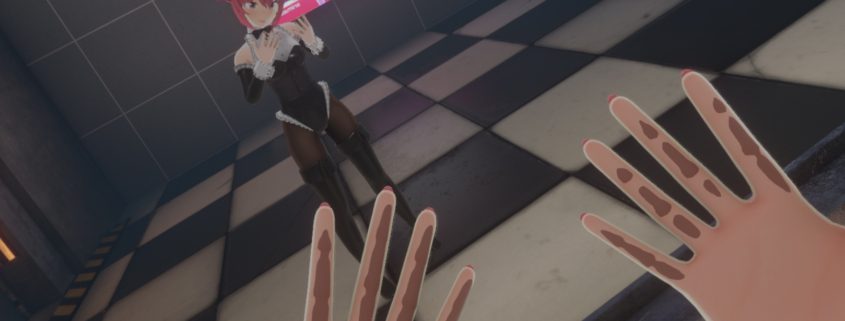Bonelab review
Half-Life Alyx never truly wowed me back in 2020, because Boneworks already had its hooks in me. While clearly lower budget and wobbly in places, I fell in love with its simulationist approach to VR. Physics-driven avatars bouncing around on 3D legs, everything with weight and heft and no invisible walls to stop me from clambering out into the sparsely-textured corners of the simulation. At times it was the kind of VR magic I dreamed of as a kid.
What Is It?: A VR physics sandbox with a sizable story mode.
Expect To Pay: $39.99 / £29.99
Release date: September 29, 2022
Developer: Stress Level Zero
Publisher: Stress Level Zero
Reviewed On: Windows 11, Nvidia 2080 Ti, Intel i9-9900k @ 4.9ghz, 32gb RAM, Quest 1 Wireless via Virtual Desktop
Multiplayer: None officially. Some with mods.
Link: Official site
Bonelab—part sequel, part creator’s sandbox—expands on that experimental, hell-or-high-water design I want out of VR. It’s not an experience I can recommend to newcomers: moving around on virtual legs can be a dizzying experience, although it’s one that I adapted to. Despite some uneven pacing and a little bit of physics jank (seemingly an inescapable part of any VR game with a lot of moving parts), Bonelab is one of the most consistently exciting PC experiences I’ve had with my Oculus Quest headset.
Where Boneworks was more of a traditional story-driven action game, Bonelab takes that core and reworks it into something similar to Garry’s Mod for VR, interwoven with a 5-6 hour story mode.Set in a strange alternate ’90s (think Hypnospace Outlaw, but more haunted) where VR took off early, the story has you breaking out of a conservative corporate-run metaverse to become a free-wheeling hacker and modder. For the most part this involves familiar VR running, gunning, brawling and puzzle-solving, but expands into more creative territory by the end.
Learnin’ to walk again
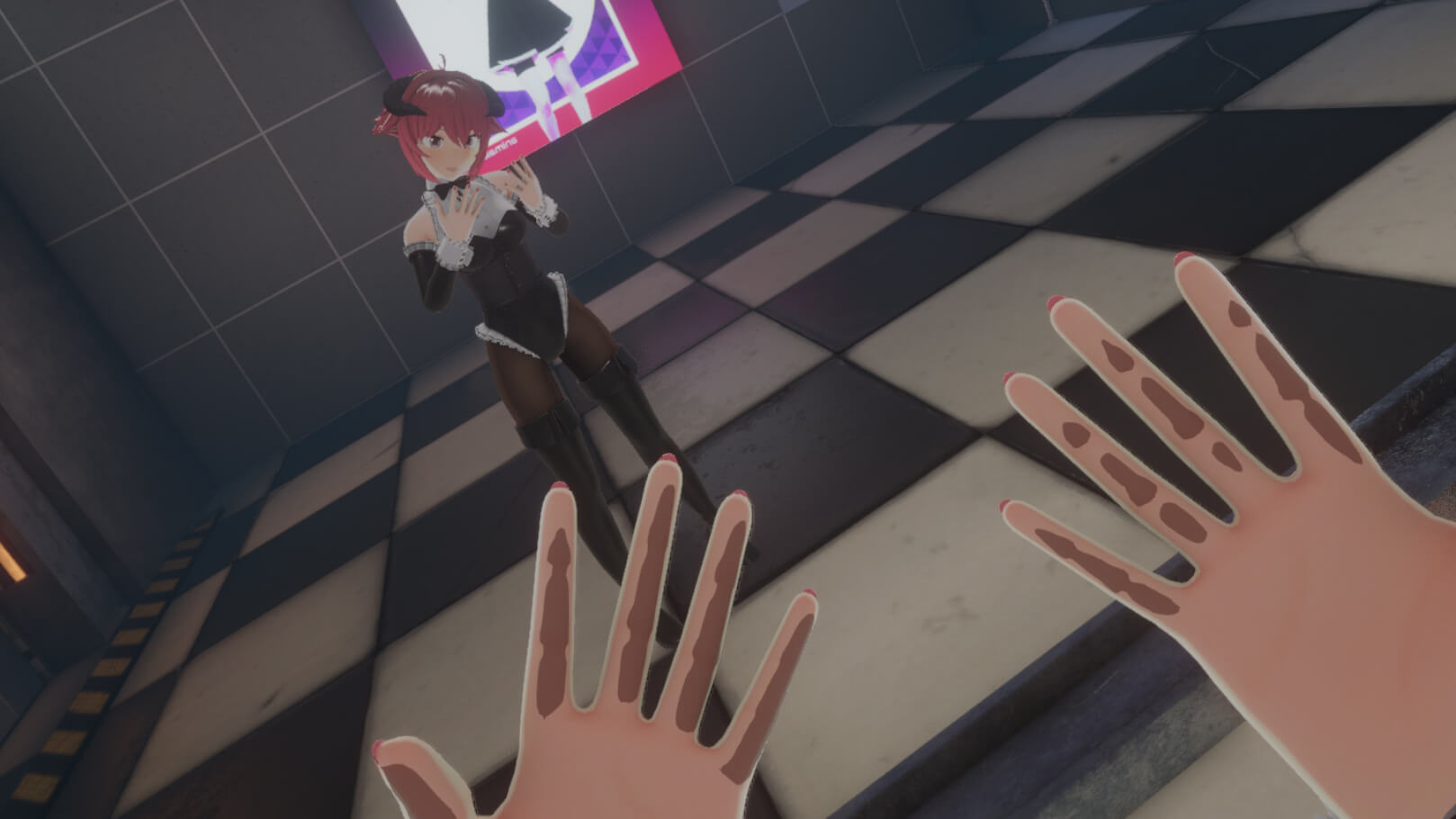
The first stretch of Bonelab introduces the basics. Movement (walking, climbing and jumping, no teleporting), basic physics puzzle-solving (often with enough wiggle-room for improvisation) and combat with melee weapons and firearms. The guns are a satisfying bunch of (mostly) real-world bullet-hoses. While not painfully realistic in their handling, they feel right, with you popping in a magazine, racking the slide and rattling off rounds as recoil dynamically spoils your aim unless you hold it steady using both hands. Thanks to better sound and effects it feels punchier than shooting in Boneworks, although melee has seen the most improvement.
Blunt attacks land with satisfying weight, while blades pierce and stick in virtual non-flesh
For a game sold on its physics-based brawling, Boneworks never quite felt right to me. Weapons were too heavy and my character was too weak. In Bonelab, most avatars I inhabited could swing a sword or club with ease. Blunt attacks land with satisfying weight, while blades pierce and stick in virtual non-flesh, requiring some force to dislodge them. Bare-handed fighting is even better, letting you properly grapple and brawl. No other game has let me convincingly grab an enemy, trip them, pin them to the ground and headbutt them (ideally while lifting their virtual shoulders towards you so you don’t go launching your headset off) into submission. Who needs pub brawls when I’ve got VR?
After the intro Bonelab gets a bit experimental, putting the story on hold to introduce a large hub containing physics sandboxes, challenge maps and score-chasing minigame modes, plus a showcase of some developer-approved mods. The arenas are an interesting distraction and the Tactical Trial maps provide some satisfying John Wick-esque room-to-room combat, but this trips up the campaign’s pacing a little. It’s a taste at what the long-term vision is for Bonelab, although at this point I felt like something fundamental was missing.
The six-body problem
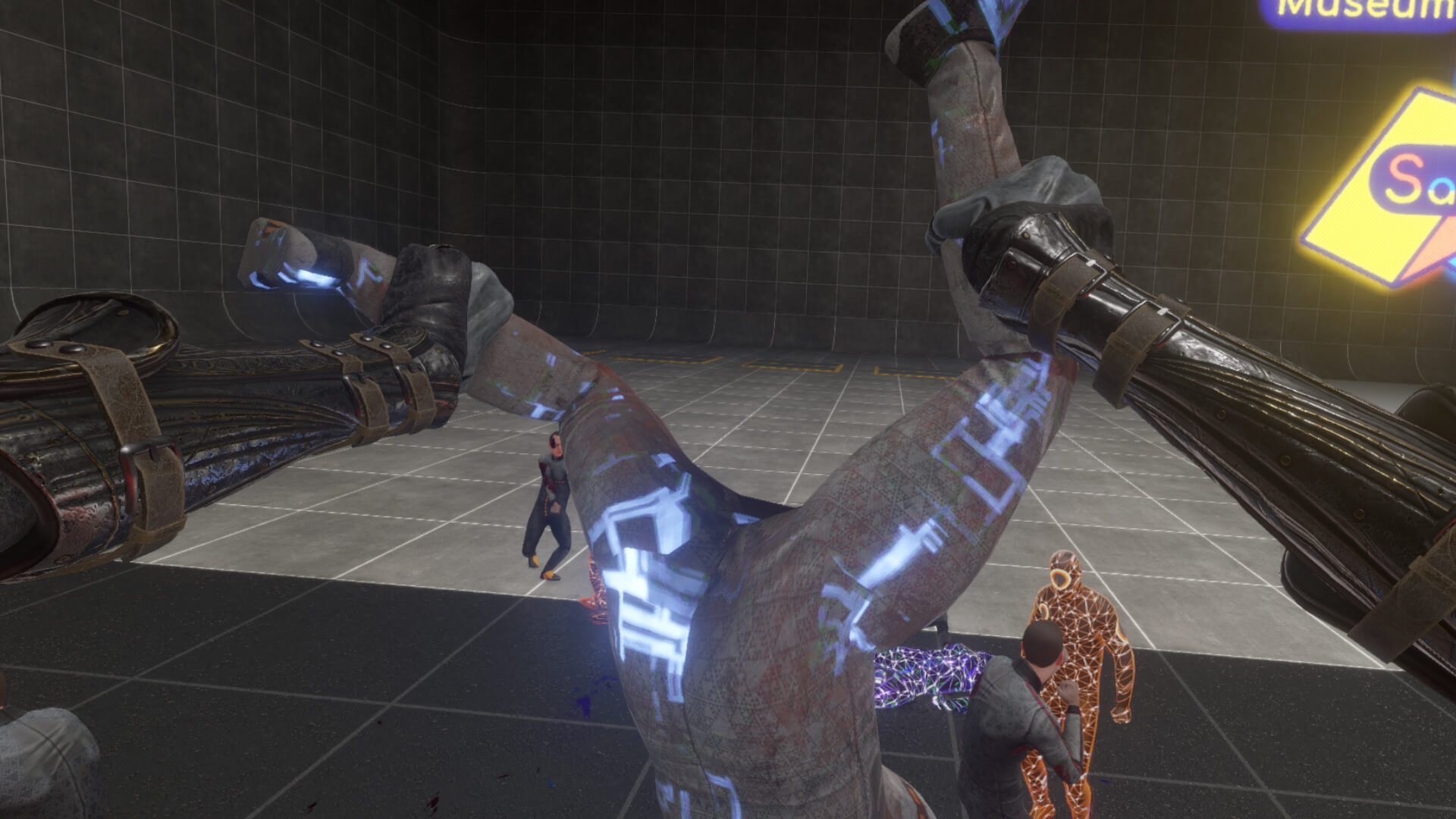
That something is kept under wraps until around halfway through the story: the Bodylog. Much like how the gravity gun recontextualized Half-Life 2, this little arm-mounted device changes how you play Bonelab, letting you switch physically-driven avatars freely for the rest of the game and beyond. Replacing your generic starting body, there are six main avatars (ranging from a petite anime devil-maid to a gangly 12-foot-tall monster) and the effect they have on gameplay is enormous.
Each body has physics and stats based on its appearance, which gave me a taste of inhabiting a completely new body. Thanks to some clever proportional mapping (if you enter your measurements correctly), each avatar feels like an extension of your body, no matter how different it is to your real-world meatsack. Configured right, touching your chest in reality maps to the same action on almost any avatar. Even user-made models with more alien proportions feel controllable, although it does sometimes feel like you’re puppeteering them around on strings, rather than fully inhabiting them.
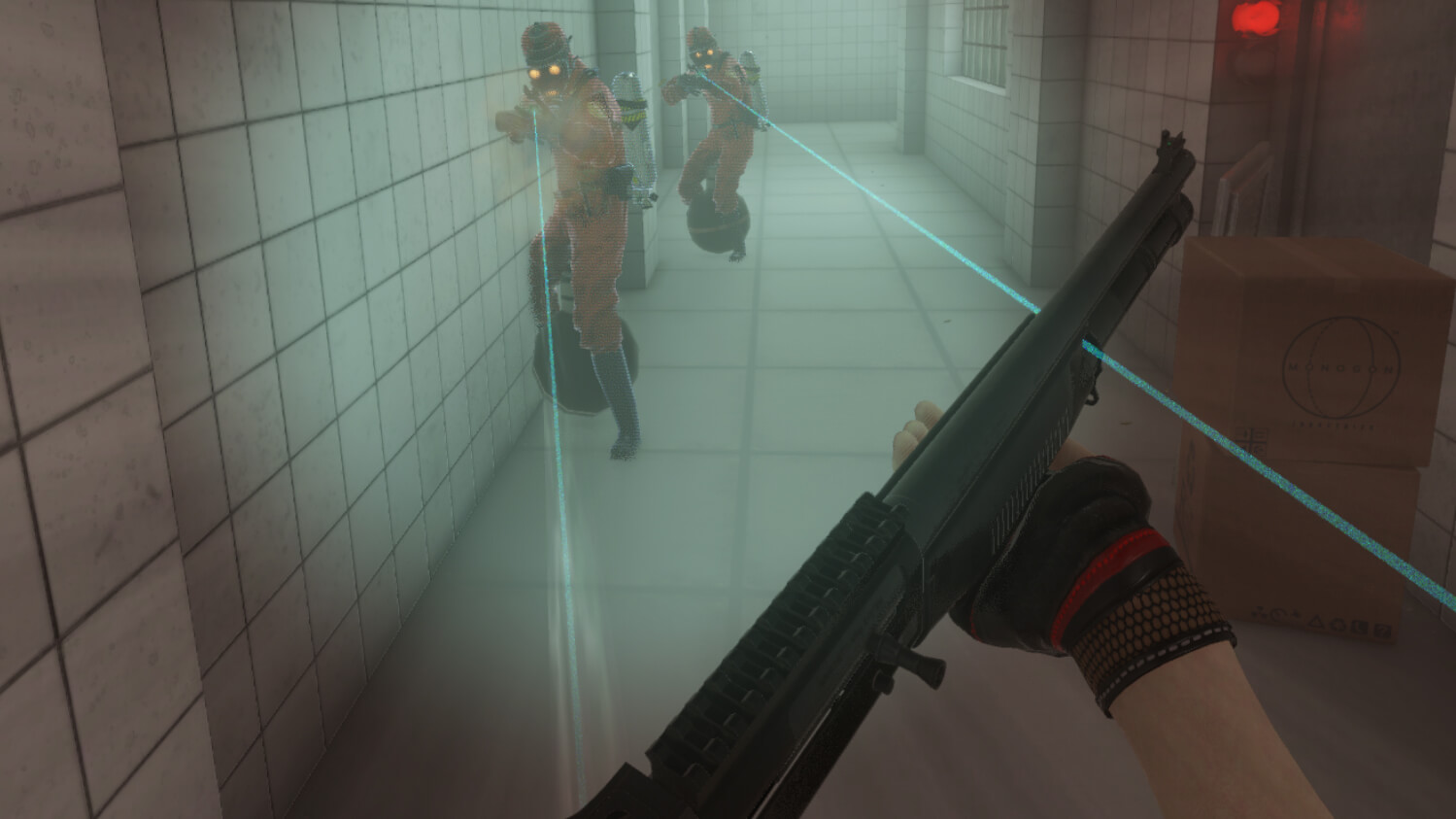
Switching between bodies to solve problems is the focus of the final stretch of the story campaign, which has the highest concentration of physics puzzling, parkour and combat. It’s never quite immersive sim-levels of freedom, but it’s thrilling to change shape to solve problems. I’d shrink down to a cartoon critter to crawl through a vent or blow myself up into an armored knight when I wanted to rumble bare-handed or move a half-ton stone obstacle. This late-game segment also features the most variety in environments, leaning into the idea that you’re breaking out of a virtual world.
Delving into this fragmented metaverse probably wouldn’t have been nearly as memorable for me were it not for Michael Wyckhoff’s expansive soundtrack. Airy synths are backed with brooding melodies and a surprising number of varied vocal tracks. Eight vocalists lend their talents, and it really cements Bonelab’s aesthetic identity; Mechanical, strange, but with a surprising amount of soul.
There is no spoon
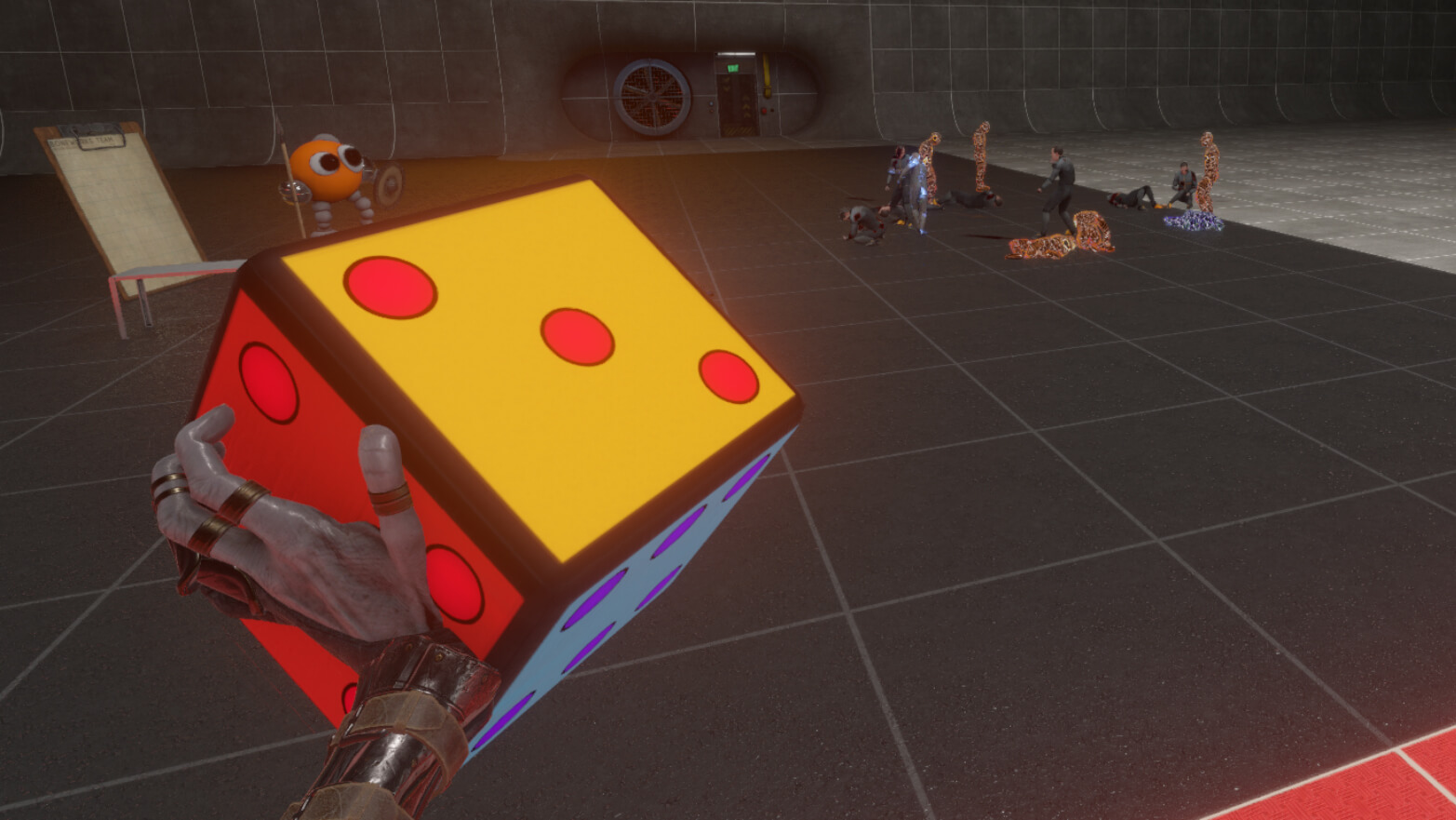
That playful vibe hits a peak in the final stretch. Bonelab’s ending is as strangely structured as everything preceding it, ending not with a dramatic boss fight, but climbing a windmill. If I had been here purely for the story, I might have been left wanting, but for me, this is where the true Bonelab experience began, thanks to the game encouraging me to immediately cut loose and start experimenting with everything I’d been given. The real magic for me became apparent bringing my avatar-switching powers back to earlier maps. What once seemed purely linear is now clearly infested with secret areas and easter eggs, most of them rewarding new tools, gadgets items or NPCs you can summon.
Players have already created things far beyond anything in the main game
This warren of secrets is how Bonelab sells the fantasy of breaking free of ‘normal’ VR’s bounds and becoming a cool creator and hacker. The other half is that the story’s end includes an invite to the official mod community Discord channel and, in turn, the game’s rapidly expanding mod repository. This is where Bonelab’s true potential is. Despite the mod SDK being only partially complete (not officially supporting the creation of new AI or custom items at present), players have already created things far beyond anything in the main game: Avatars with built-in weapons, a waterpark to slide around in a rideable rubber ring, tons of guns and hundreds of new maps; some scripted, some sandboxes.
While not early access, Bonelab is still a work-in-progress. Since launch, there have been multiple updates to the mod development tools, and a major update to the game to improve a handful of levels. Even within the game there’s hints at a whole ‘B-side’ plot that doesn’t exist at present. Developers Stress Level Zero have promised to work closely with players on the future of Bonelab, and it’s anyone’s guess where it’ll end up. I’m just glad to be on the ground floor of such an experimental game, and curious as to how it’ll change—or change VR itself—over the coming months.

